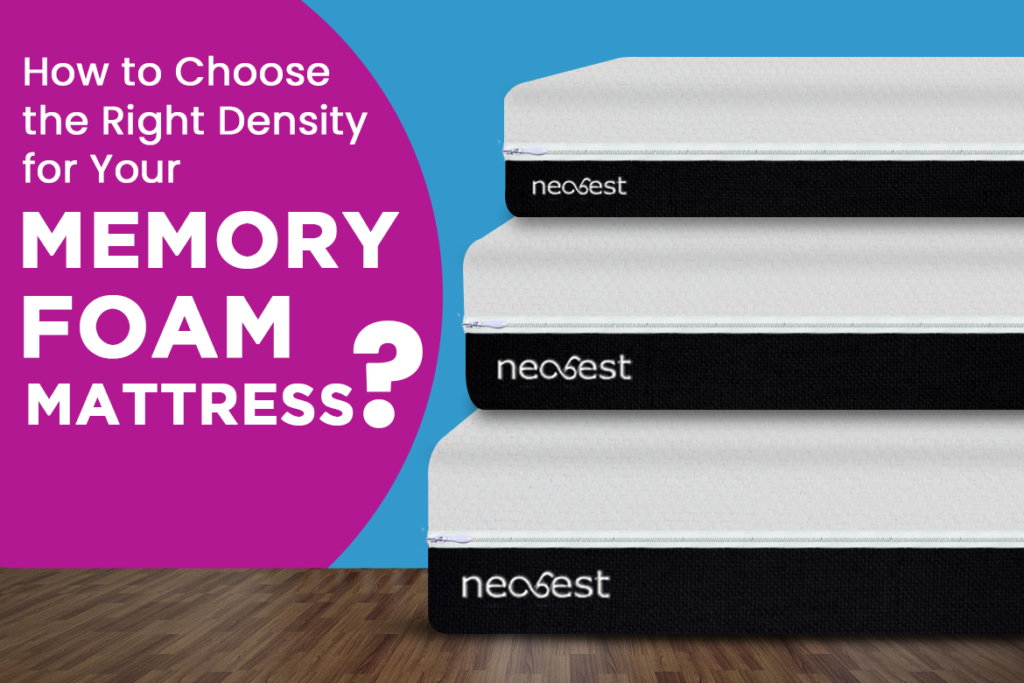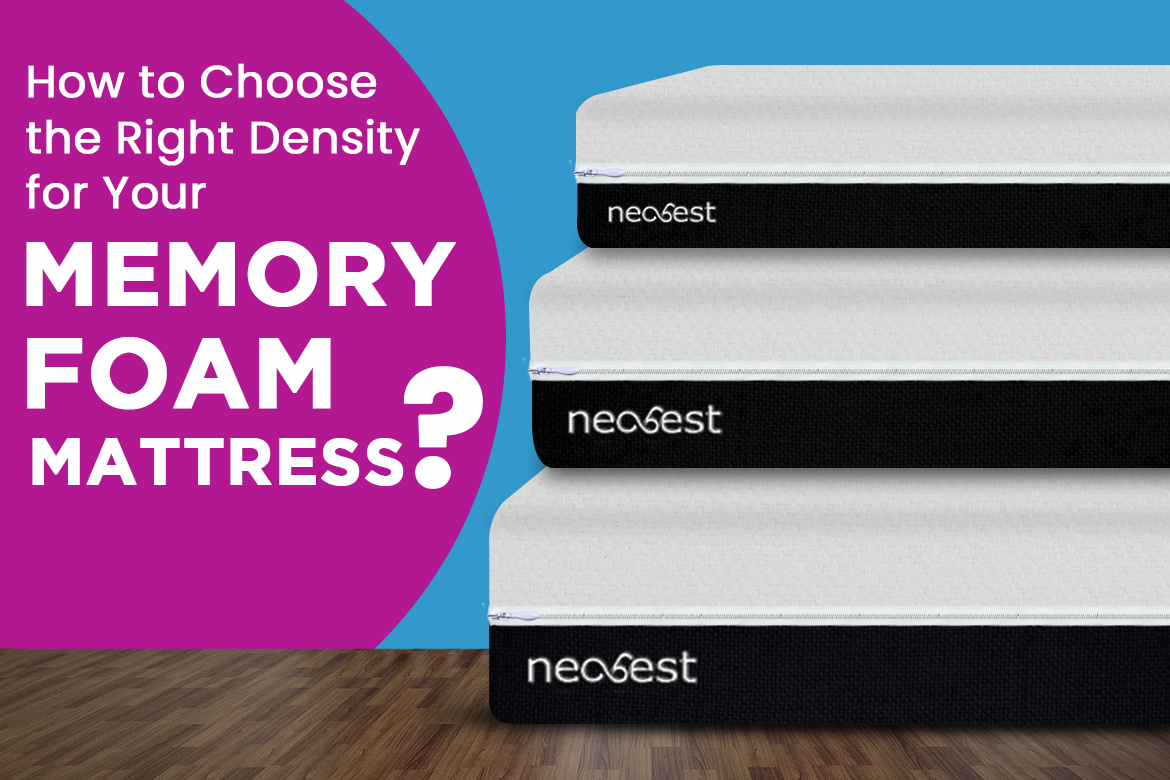
Memory foam mattresses are highly recommended for better posture, improved sleep quality, and other such features. However, the density of memory foam mattresses is a topic worth discussing. Getting the right thickness of a memory foam mattress can further improve the sleep quality of a person as well as their posture.
Before diving into the details of memory foam thickness, let’s take a look at their properties. Memory foam mattresses are known for their extreme comfort and positive impact on the user. They are made from viscoelastic material, giving them unique properties. When a person lies down on a memory foam mattress, the material molds around their body posture. When they wake up, the mattress returns to its originality once again.
If one wakes up quickly, one can see the mattress going back to its original form. The modern market is filled with options for various kinds of mattresses. However, finding the right memory foam bed can be tricky if one is not aware of the correct thickness that’s ideal for them.
Density of Memory Foam Mattresses
This is where the density of a memory foam mattress comes into the picture. As mentioned previously, this kind of mattress is made from viscoelastic material. Generally, memory foam mattresses are classified into three categories based on the density. They are as mentioned below:
High-Density Memory Foam
High-density memory foam brings in better firmness and durability. Generally, high-density foam is classified as weighing 2.27 Kg and can go up to 2.72 Kg. This type of high-density memory foam will feel very firm at first. If you have severe body pain, this type of mattress can help in relieving the pain with pressure points. Moreover, a high-density memory foam can last up to 8-10 years but it might cost a bit more than the other kinds of memory foam mattress.
Medium-Density Memory Foam
The second category of thickness of memory foam mattresses includes medium-density or mid-grade foam. In comparison, a medium-density memory foam mattress weighs anywhere between 1.81 Kg to 2.27 Kg. It also comes with strong pressure relief points but is not as thick as high-density memory foam. That said, mid-grade density memory foams also have high durability and can last up to 10 years.
Low-Density Memory Foam
Lastly, low-grade density memory foams are also available in the market today. In comparison, these mattresses weigh anywhere between 0.91 Kg to 1.36 Kg, making them lightweight. Unlike high-density memory foam, low-density memory foam mattresses will feel softer and more comfortable. One can also experience a sinking feeling when they sleep on low-grade memory foam mattresses. That said, the durability of these mattresses is comparatively lesser than the other memory foam mattresses.
How to Choose the Right Density for Your Memory Foam Mattress?
Firstly, all kinds of memory foam mattresses are good for all kinds of sleepers. Whether you’re a side sleeper or a light sleeper, a memory foam mattress can help in relieving pain and improve the quality of sleep. The above-mentioned three kinds of memory foam mattresses can be used by all kinds of sleepers.
Generally, when we buy a new mattress, we look for utmost comfort. In this factor, a low-density memory foam mattress ticks the box as it’s considered to be very soft and quite comfortable. At the same time, it’s advised to keep your body requirements in mind while buying a new mattress. This can be your stress levels, body pains, joint aches, and so on.
If you suffer from body pains and other ailments, getting a high-density or medium-density memory foam mattress makes an ideal choice. Ultimately, using a memory foam mattress will help relieve your body pain and stress in the long run. Plus, it’ll help in improving the quality of sleep as well, which in turn can reduce various other ailments. One can also top it up by using cooling surfaces like cooling gels to further enhance the sleeping experience.

